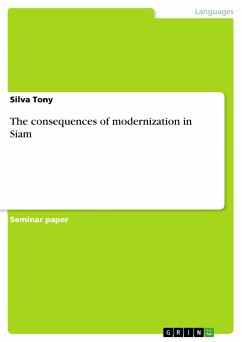Seminar paper from the year 2023 in the subject Asian studies, grade: 1,7, Humboldt-University of Berlin, language: English, abstract: China joined the Internet in 1994 year, becoming the earliest country to mark this achievement in Asia, but in the world taking 71th place registering to the global network. Use of the Internet in China has dramatically changed- from 22 million users in 2000 to 854 millions in 2020. That makes every second citizen in China (59,3% precisely) being on the Internet. In 2021 the percentage of the Chinese population on the Web skyrocketed to 70% with 1,01 billion users. In this essay I argue that the advent of the Internet in China is not liberating in both two dimensions: outside of the Internet (referring to the digital divide) and on the Internet (for netizens). Moreover, Virtual China rather resembles an endless mouse-and-cat game. With mouse being the official authorities and cat chinese netizens. Although it could have a liberating potential, it is not very effective. On the other hand, it also contributes to social inequalities, as not every citizen has access to the Internet or simply the will (as in the case of elderly group) to actively use it. This all deepens social tensions, which are destructive for the mass mobilization that is so much needed in the fight for democracy. The battlefield for the and on Internet counties endlessly without the clear winner. As soon as one side of the duvet (Internet) is trying to pull into one's direction, the other side responds instantly pulling into one's side. For the authorities, the Internet is being implemented as an instrument of digital authoritarianism. Chinese netizens however recognize in the Internet the potential of liberating technology. They are proactively trying to make use of its own needs, by online protests, posts and comments that criticize, mock and satirize the ruling power. They do it as long as they are not being caught by online censors or outside of the Web by officers and judicial authorities.
Dieser Download kann aus rechtlichen Gründen nur mit Rechnungsadresse in A, B, BG, CY, CZ, D, DK, EW, E, FIN, F, GR, HR, H, IRL, I, LT, L, LR, M, NL, PL, P, R, S, SLO, SK ausgeliefert werden.









